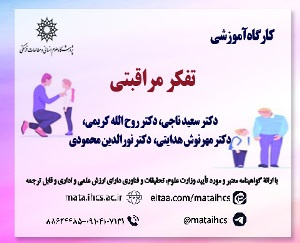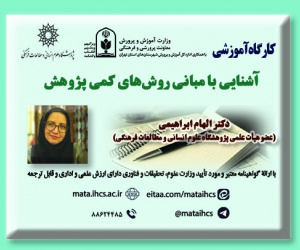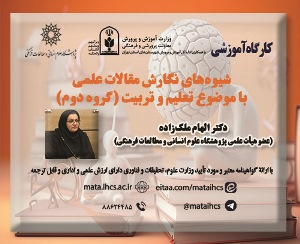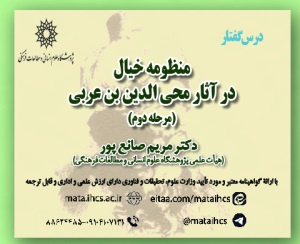مقایسه اثربخشی آموزش هیجان مدار مبتنی بر رویکرد( HMT-LMG) و تحلیل ارتباط متقابل (TA)بر تمایزیافتگی و حل تعارض والد-نوجوان (مقاله علمی وزارت علوم)
درجه علمی: نشریه علمی (وزارت علوم)
آرشیو
چکیده
مقدمه : هدف پژوهش حاضر، مقایسه اثربخشی آموزش رویکرد هیجان مدار مبتنی بر (HMT/LMG) و تحلیل ارتباط متقابل بر تمایزیافتگی و حل تعارض والد-نوجوان بود. روش : روش پژوهش، نیمه آزمایشی با طرح پیش آزمون - پس آزمون دو گروه آزمایش با پیگیری سه ماهه و جامعه آماری شامل تمامی دانش آموزان دختر دوره متوسطه شهر مشهد در سال تحصیلی 99-1400 بود (12018 نفر). حجم نمونه 60 نفر دانش آموز همراه مادر با روش نمونه گیری خوشه ای چندمرحله ای انتخاب و با گزینش تصادفی در دو گروه آزمایش قرار گرفتند (هر گروه 30 نفر). جهت جمع آوری داده ها از مقیاس های نگرش فرزند نسبت به مادر (CAM)، تاکتیک های تعارض موری اشتراوس (1990) و تمایزیافتگی اسکورن و فریدلندر(1998) و همچنین، بسته های آموزشی تحلیل ارتباط متقابل استوارت و جونز (2009) و هیجان مدار(HMT/LMG) آیکین و آیکین (2017) استفاده گردید. هر دو گروه پرسشنامه های مذکور را تکمیل و سپس یکی از گروه ها به مورد مداخله تحلیل ارتباط متقابل و گروه دیگر برنامه(HMT/LMG) را دریافت کرد. در پایان مداخله نیز هر دو گروه پرسشنامه ها را کامل و داده ها با تحلیل واریانس چندمتغیری با اندازه گیری مکرر تحلیل شدند. یافته ها : اثر زمان، گروه و تعامل زمان در گروه آموزش هیجان مدار(HMT/LMG) نسبت به گروه تحلیل ارتباط متقابل برای تمایزیافتگی و حل تعارض معنادار بود (001/0>p). نتیجه گیری : با عنایت به نتایج به دست آمده، آموزش رویکرد هیجان مدار (HMT/LMG) جهت بهبود سطح تمایزیافتگی و حل تعارضات دوره نوجوانی توصیه می گردد.Comparison of (EFT) training based on the HMT/LMG approach and (TA) on the differentiation and resolving the Parent-Adolescent conflict
Aim : The aim of the present study was to compare the effectiveness of Emotion-Focused approach training based on HMT/LMG and transactional analysis on the differentiation and resolving the Parent-Adolescent conflict. Method : The research method was quasi-experimental with a pretest-posttest study of two experimental groups with a three-month follow-up and the statistical population included all female high school students in Mashhad in the academic year of 1399-1400 (12018 people). The sample size included 60 students along with their mothers who were selected by multi-stage cluster sampling method and randomly selected into two experimental groups (each group 30 people). In order to collect data from the measures of the Child’s Attitude toward Mother Scale (CAMS), Murray Strauss conflict tactics (1990) and Strauss and Skorn and Friedlander's differentiation (1998), as well as Stewart and Joines (2009) transactional analysis training packages and Aikin and Aikin's (2017) Emotion-Focused (HMT/LMG) were used. Both groups completed the mentioned questionnaires and then one group received the transactional analysis intervention and the other group received the HMT/LMG program. At the end of the intervention, both groups completed the questionnaires. Results : The effect of time, group and time interaction in the Emotion-Focused (HMT/LMG) training group was significant for differentiation and conflict resolution compared to the transactional analysis group (p>0.001). Conclusion : According to the obtained results, program HMT/LMG is recommended in Emotion-Focused training to increase differentiation and resolve conflicts during adolescence.






